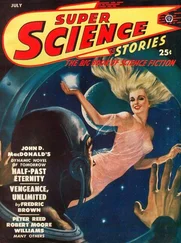“I forgot about her. She’s spending the summer down here.”
“Maybe she isn’t as tough-minded as Claire and Di.”
“A man would have to be a thousand percent bastard to get at a man that way, Chet.”
Rand shrugged. “It would depend on what he had to have, and how far he’d have to go to get it. Bastardliness is relative, friend. Two months ago a partner in an old firm died. The business is worth maybe three hundred thousand. The surviving partner is buying out the widow for five thousand, because that’s the figure given in the original partnership agreement drawn up in 1932, and never updated. The partners and their wives have been close for thirty years. Now the widow can’t understand how good old Joe can do this to her. But the law says he can, and he’s doing it. Don’t talk to me about thousand percent bastards.”
“I wasn’t fishing, Chet.”
“Of course you weren’t. This was a private talk, Jimmy. Be at ease.”
“Thanks for... talking about your own bruise, Chet.”
“It doesn’t bother me much any more, I just wonder where she is, sometimes, and how she’s making out. Listen. Whatever you use on Sinnat, don’t try a boat hook. It won’t work.”
On the short ride back to the newspaper in the bake-oven heat of his old station wagon, Jimmy Wing found his sense of unreality slightly enhanced. When a traffic light stopped him, he stared at his own hand resting on the steering wheel, a long hand, veined and freckled, fuzzed with pale fur, grasping the wheel with indifferent simian competence, as apart from him as though he looked over the shoulder of a stranger.
The hand is the animal reality, he thought, for blows and tools and caresses. Morality is an unreal conjecture, for younger men than I am. Morality is the conflict of rationalizations. I am trapped by myself, unable to do more or less than the old limitations permit.
He had a specific visualization of rationalizations, seeing a little apart from the commonplace furniture of his mind, a cave pink and membranous, where the things too easy to believe were like flat leech-creatures which inched up from the dark floor to affix themselves to the soft walls. If they were peeled away quickly they did no harm. But the longer they remained the more difficult they were to dislodge. Eventually they made themselves so much a part of the walls there was no way to find them, or even to know they were there. And so truth, forever out of focus in any case, was prey to these further distortions assembled over the years. They made a comfortable muffling, a padded toughened wall, as opposed to a Calvinist rawness.
The girl lives in the unreal context of wealth, youth and beauty. It would be a favor to her to show her the world has edges and thorns.
Besides, the time to make any decision is after you find out what, if anything, is usable.
And if you don’t do it, somebody else will.
He phoned Kat from the place where he had lunch. She said she was just leaving for Jackie Halley’s house. She said she wanted to talk to him, but she’d be at the Halleys’ all afternoon. She said she had a lot to tell him and ask him. Could he stop by the Halleys’ about six o’clock? He told her that if he couldn’t make it, he’d phone her there and set up something else.
After he had turned in his Sunday edition copy, he drove to the Palm County Art Center building. It was on city-owned land at the foot of Center Street, fronting on the bay. The big tract also contained the Community Auditorium, the Teen House, the public library and the new headquarters for the city police. In the early thirties when the tract had been available for back taxes, the Cable family had purchased it and turned it over to the city for civic uses.
The Art Center was an incongruous piece of architecture for even that tropic coast, red brick Georgian with white pillars and fake shutters, more suitable to a shopping center in Williamsburg. He parked in the wide and empty asphalted area which served all the buildings in the tract. A sign on the front door of the Center announced that it was closed. The door was unlocked.
He walked through the arched entrance to the main gallery where Morton Dermond was supervising the efforts of a half dozen young people who were uncrating and hanging a show.
“Doris, darling,” Dermond yelled, “the reds in that one will absolutely slay that wonderful Ricardi. You’ll have to get it much further away. Try the west wall, dear.”
He came smiling over to Jimmy Wing. “This show is so colorful, we’re having a hideous time hanging it. How are you, Jimmy? I’m really terribly excited about this show. It’s a shame we couldn’t have gotten it during the season, but it’s really much too good for us at any time of year. It’s a traveling show. California artists. I was able to get it only because they had a little gap in their scheduling. It’s on its way from the Delgado to the Four Arts. Please don’t tell me you are going to review it! But you might do better than poor Dottie Grumbann at that. The dear thing comes to an absolute cultural stop over anything more complex than a Picasso.”
“Is this a bad time to talk to you, Mortie? I’m just feeling out a possible feature story on these summer classes for kids.”
“I can talk, if we stand here where I can see what’s happening. Charles! I want to save that center wall for the Deibenkorn, please. Why don’t you get it and hang it next, dear boy?”
“I had the idea of doing it as a sort of double interview, Mortie. One with a teacher, and one with one of the kids.”
“But you’ll have to clear the final draft with me, Jimmy. I have a very cowardly board of directors, you know. Let me see. I have just two teachers this summer. Peter Trent is sweet, but he’s practically inarticulate. I think Nat Sinnat would be really ideal. And she’d look better in a photograph than Peter would, with that grimy beard.”
“Then I have your permission to set it up with her?”
“Natalie! Come here a moment, dear!”
A girl at the far end of the gallery turned and came walking toward them, brushing her dark hair back with the back of her hand. She wore salmon-colored shorts and a white shirt with the sleeves rolled up. Her sun-dark legs were almost but not quite too thin. She walked well, with grace and assurance. As she came close Jimmy saw that she looked flushed and hot. Her hands and shirt and chin were smudged.
“Natalie, dear, this is an old friend of mine, Jimmy Wing, from the newspaper. We can spare you for a little while here, so why don’t you take Jimmy into my office. He wants to interview you for a newspaper story about the children.”
“How do you do?” Natalie said. “I’ve heard Mrs. Hubble speak of you, Mr. Wing.”
“I don’t want to take you away from your work, Natalie.”
“She’s earned a break, Jimmy. She’s done as much as any two of the others.”
The girl picked her purse up from a bench by the arch and, as they walked out into the lobby, she said, “If you’ll excuse me, I’d like to wash up. I don’t know how the paintings get so filthy. If you’ll wait for me in Mortie’s office, I won’t be long.”
Morton Dermond’s small office was a sweltering jungle of books, easels, paintings, sculpture, mobiles, magazines, posters, sandals and strange hats. He turned on the window air conditioner, cleared the junk from two contour chairs and positioned them near the only clear corner of Dermond’s desk.
The girl came in, closing the door behind her, and went to stand in front of the cold wind of the air conditioner. “This is my first summer down here,” she said. “It’s really wicked, isn’t it?”
“Once we start getting some rain every day it won’t be so bad.”
Читать дальше
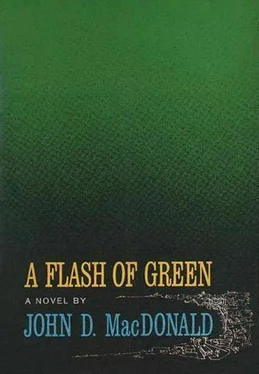
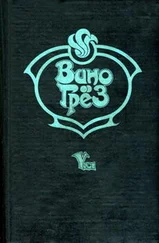
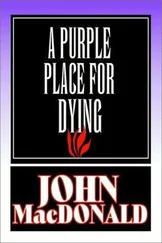

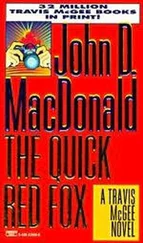
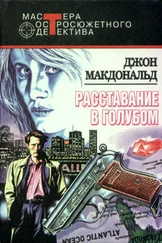




![Джон Макдональд - Wine of the Dreamers [= Planet of the Dreamers]](/books/430039/dzhon-makdonald-wine-of-the-dreamers-planet-of-thumb.webp)

